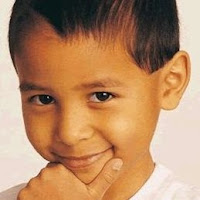Managing “Fixations” in Children and Teens on the Autism Spectrum
"How much should we allow our daughter [high functioning] to play video games? She would spend most of her time doing this if we let her. My husband and I are divided on this issue, which has caused a riff between us." If you are the mom or dad of a youngster with ASD level 1 [High-Functioning Autism], you may have heard your youngster exclaim, "But I can't live without it!" on more than one occasion. You may also notice that the book bag you just saw him pack is suddenly filled with a few more Harry Potter books. Or perhaps that suitcase for the trip to grandma's house has a Gameboy in it, when he promised he would leave it at home this time. Fixations or perseverations with certain topics or objects, ranging from books, video games, or trains to history, movies, or any number of other subjects, are a classic symptom of ASD. In addition to impairments in social functioning, the Diagnostic and Statistical Manual lists as a characteristic of the disorde





